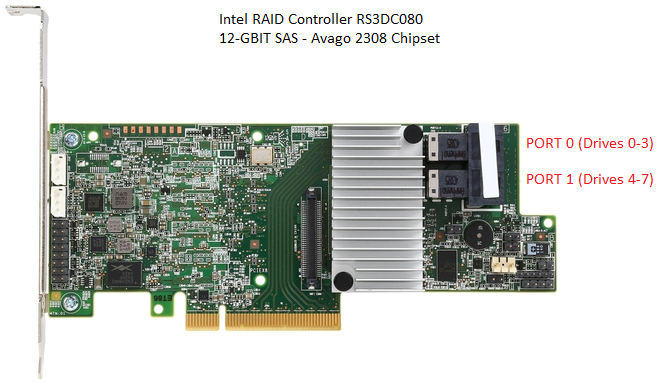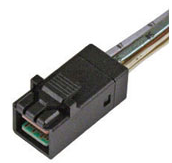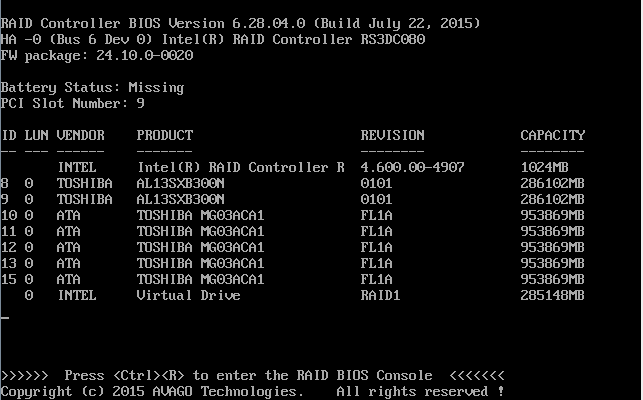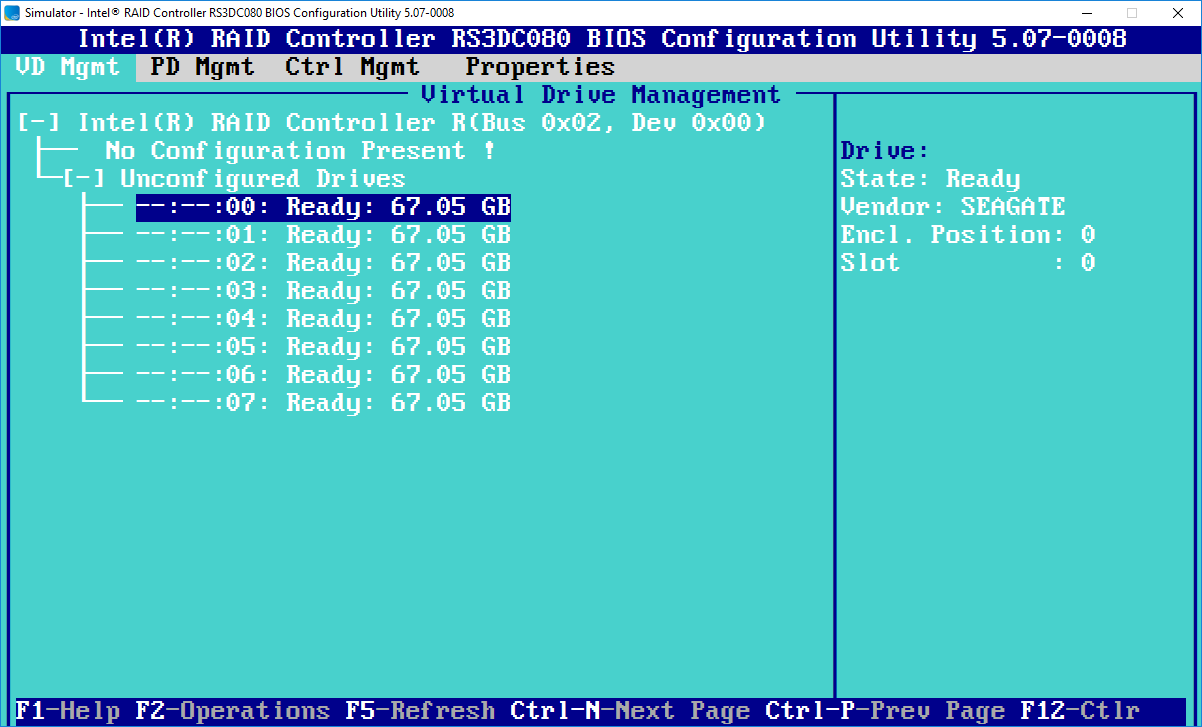|
Article ID: 556
Last updated: 8 Apr, 2016
Hardware RAID ControllerThe Intel RS3DC080 is a hardware RAID controller, with an Avago / LSI Chipset. This is a PCI Express based device and is compatible with a number of Intel server motherboards. This module is based on the the first generation of Avago 12Gbit (12G) SAS controllers and is the sucessor to the RS25 range of produdcts. It is backwards compatible with 6GB SAS and 6GB SATA devices. The Card
The module has a warning buzzer as per previous products and two Mini-SAS HD SFF-8643 connectors for drives. Drive LED Management is normally performed through the sideband connection in the data cable. Key Features:
Driver SupportThis module is supported by the same LSI Hardware Family Driver as per the RS2BL080 and RMS25CB080, upgraded to support the new chipsets. Operating system migration between controllers is only possible if the new model controller has been present when Windows is booted, or if the Windows inbox driver supports the card. Only the Windows 2012 R2 or newer Inbox LSI Driver supports the RS3DC080 in emergency situations. RAID Web Console 2 version 15 or later should be used to perform management of this controller from within Windows. New Connector StandardThe mini-SAS HD Connector SFF-8643 supports 12Gbit/Second transfers. 12Gbit/second transfers also requires compatible devices and backplanes. The use of older devices or backplanes will result in a lower connection speed. Cables are available to connect SFF-8643 cards or modules to older SFF-8086 6Gbit/second backplanes. Revised RAID BIOSTo get into the new RAID BIOS, unlike previous generations which used CTRL+G, use CTRL+R during system POST.The new 12G Generation of LSI / Avago cards comes with a revised RAID BIOS which reverts from a GUI to a more text-based look. Most operations that were possible in the previous generation as still possible. Note the intructions on the bottom of the screen on how to move between tabs (CTRL+N / CTRL+P) and how to open the properties of an element, for example by pressing F2, for Operations.
Useful Links
Applies to:
This article was:
Article ID: 556
Last updated: 8 Apr, 2016
Revision: 8
Access:
Public
Views: 2986
Posted: 8 Apr, 2016 by
Andrew Sharrad
Updated: 8 Apr, 2016 by
Andrew Sharrad
Attached files
Also read
|




